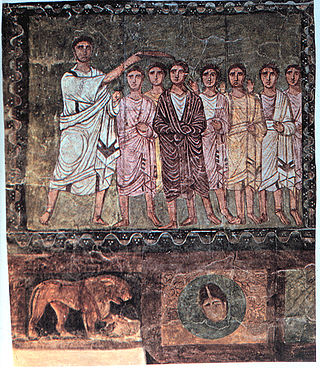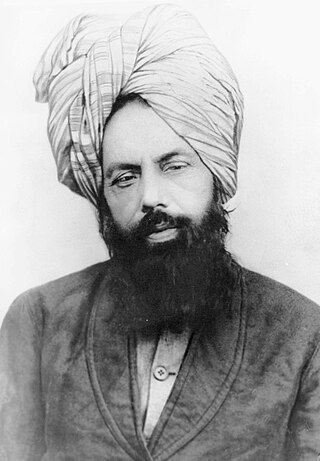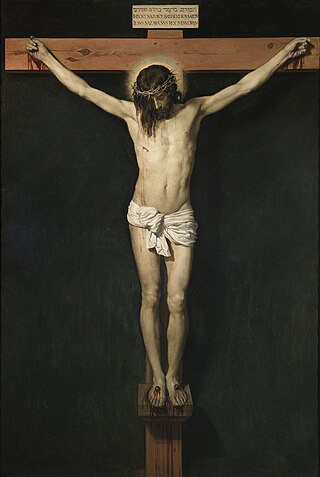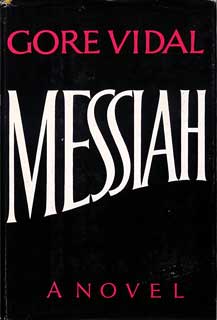Christianity began as a movement within Second Temple Judaism, but the two religions gradually diverged over the first few centuries of the Christian era. Today, differences of opinion vary between denominations in both religions, but the most important distinction is Christian acceptance and Jewish non-acceptance of Jesus as the Messiah prophesied in the Hebrew Bible and Jewish tradition. Early Christianity distinguished itself by determining that observance of halakha was not necessary for non-Jewish converts to Christianity. Another major difference is the two religions' conceptions of God. Depending on the denomination followed, the Christian God is either believed to consist of three persons of one essence, with the doctrine of the incarnation of the Son in Jesus being of special importance, or like Judaism, believes in and emphasizes the Oneness of God. Judaism, however, rejects the Christian concept of God in human form. While Christianity recognizes the Hebrew Bible as part of its scriptural canon, Judaism does not recognize the Christian New Testament.

In Abrahamic religions, a messiah or messias is a saviour or liberator of a group of people. The concepts of mashiach, messianism, and of a Messianic Age originated in Judaism, and in the Hebrew Bible, in which a mashiach is a king or High Priest traditionally anointed with holy anointing oil.

Bábism, also known as the Bábi Faith, is a monotheistic religion founded in 1844 by the Báb. The Báb, an Iranian merchant-turned-prophet, professed that there is one incorporeal, unknown, and incomprehensible God who manifests his will in an unending series of theophanies, called Manifestations of God. The Báb's ministry, throughout which there was much evolution as he progressively outlined his teachings, was turbulent and short lived and ended with his public execution in Tabriz in 1850. A campaign of extermination followed, in which thousands of followers were killed in what has been described as potentially one of the bloodiest actions of the Qajar Iranian military in the 19th century.

Messianic Judaism is a syncretic Abrahamic new religious movement that combines various Jewish traditions and elements of Jewish prayer with Evangelical Protestant theology. It considers itself to be a form of Judaism but is generally considered to be a sect of Christianity,, including by all major groups within mainstream Judaism, since Jews consider belief in Jesus as the Messiah and divine in the form of God the Son to be among the most defining distinctions between Judaism and Christianity. It is also generally considered a Christian sect by scholars and other Christian groups.

Jacob Joseph Frank was a Polish-Jewish religious leader who claimed to be the reincarnation of the self-proclaimed messiah Sabbatai Zevi (1626–1676) and also of the biblical patriarch Jacob. The Jewish authorities in Poland excommunicated Frank and his followers due to his heretical doctrines that included deification of himself as a part of a trinity and other controversial concepts such as neo-Carpocratian "purification through transgression".

The Messiah in Judaism is a savior and liberator figure in Jewish eschatology who is believed to be the future redeemer of the Jews. The concept of messianism originated in Judaism, and in the Hebrew Bible a messiah is a king or High Priest of Israel traditionally anointed with holy anointing oil.

Mirza Ghulam Ahmad was an Indian religious leader and the founder of the Ahmadiyya movement in Islam. He claimed to have been divinely appointed as the promised Messiah and Mahdī—which is the metaphorical second-coming of Jesus (mathīl-iʿIsā), in fulfillment of the Islamic prophecies regarding the end times, as well as the Mujaddid of the 14th Islamic century.
Messianism is the belief in the advent of a messiah who acts as the savior of a group of people. Messianism originated as a Zoroastrian religious belief and followed to Abrahamic religions, but other religions also have messianism-related concepts. Religions with a messiah concept include Hinduism (Kalki) Judaism (Mashiach), Christianity (Christ), Islam, Druze faith, Zoroastrianism (Saoshyant), Buddhism (Maitreya), Taoism, and Bábism.
Schisms among the Jews are cultural as well as religious. They have happened as a product of historical accident, geography, and theology.

Julian is a 1964 novel by Gore Vidal, a work of historical fiction written primarily in the first person dealing with the life of the Roman emperor Flavius Claudius Julianus, who reigned briefly from 360 to 363 A.D.

Live from Golgotha is a novel by Gore Vidal, an irreverent spoof of the New Testament. Told from the perspective of Saint Timothy as he travels with Saint Paul, the 1992 novel's narrative shifts in time as Timothy and Paul combat a mysterious hacker from the future who is deleting all traces of Christianity.

Jesus was criticised in the first century CE by the Pharisees and scribes for disobeying Mosaic Law. He was decried in Judaism as a failed Jewish messiah claimant and a false prophet by most Jewish denominations. Judaism also considers the worship of any person a form of idolatry, and rejects the claim that Jesus was divine. Some psychiatrists, religious scholars and writers explain that Jesus' family, followers and contemporaries seriously regarded him as delusional, possessed by demons, or insane.
New religious movements and cults have appeared as themes or subjects in literature and popular culture. Beginning in the 1700s authors in the English-speaking world began introducing members of "cults" as antagonists, Satanists, Yakuzas, Triads, Thuggees, and sects of the Latter Day Saint movement were popular choices.

Messianism in Chabad refers to the core belief within the Chabad-Lubavitch community—a prominent group within Hasidic Judaism—regarding the Jewish messiah. Central to this belief is the conviction that Rabbi Menachem Mendel Schneerson, the seventh Rebbe of the Chabad-Lubavitch dynasty, is the awaited Messiah who is leading the Jewish people into the Messianic era.
Meivazhi, meaning 'the True Path', also known as the "மறலி கை தீண்டா சாலை ஆண்டவர்கள் மெய் மதம்", is a syncretic monotheistic religion based in Tamil Nadu, India. It seeks to spread the true purpose of every religion which originated on Earth and preaches the oneness of all religions such as Saivism, Vaishnavism, Buddhism, Zoroastrianism, Islam, Judaism, Christianity, etc.., and united more than 69 castes into a single community. Its focus is on spiritual enlightenment and conquest of death by attaining Heaven, through the teachings and blessings of its founder and leader, Meivazhi Salai Aandavargal, who is believed to be the final incarnation of God expected by all religion. It has its own set of holy scriptures that runs up to four volumes, along with a unique prayer system and festivals. Although its founder was born in a Muslim family, it draws strongly from Hinduism. It allows membership irrespective of caste, creed, colour or religion, but the only requirement for being a disciple of Meivazhi religion is to be a believer in God. It has only one temple all across the world, which is situated at Meivazhi Salai in Pudukkottai district, Tamil Nadu, named as the Ponnaranga Devalayam. Its official liturgical language is Tamil. The religion forbids smoking, alcohol, gambling, and theft, and practices vegetarianism. The Temple stipulates a dress-code for its followers, which are white panchakacham and a white, pointed turban for its male followers, while its female followers wear a headscarf. The senior disciples who had received spiritual revelations from Salai Aandavargal, wear saffron clothing and wear saffron pointed turban with an upward-pointing crescent symbol called as 'Kilnaamam'. Further, the senior disciples of the religion prefix the word 'Meivazhi' before their name and suffix the word 'Anandar', while the younger disciples have the word 'Salai' prefixed to their names.
The Testament of Man (1943–1960), a twelve-volume series of novels by the American author Vardis Fisher, traces the physical, psychological and spiritual evolution of Western civilization from Australopithecus to the present. The series explores a pantheon of subjects: myth, ritual, language, family, sex and especially sin, guilt and religion. Each work emphasizes a particular pathway that Fisher considered of paramount importance in the development of the modern world and our current views.
Enlightened minds must wonder what the world would be like today if the torrent [that carries us along] had taken another channel at any one of a dozen moments in history. What if Greek values had triumphed in that war more than twenty−one centuries ago?
Jadonang Malangmei (1905–1931), popularly known as Haipou Jadonang, was a Naga spiritual leader and political activist from Manipur, British India. He established the Heraka religious movement, which was based on the ancestral Naga religion, and declared himself to be the "messiah king" of the Nagas. His movement was widespread in the Zeliangrong territory before the conversion to Christianity. He also espoused the cause of an independent Naga kingdom, which brought him in conflict with the colonial British rulers of India. He was hanged by the British in 1931, and succeeded by his cousin Rani Gaidinliu.










